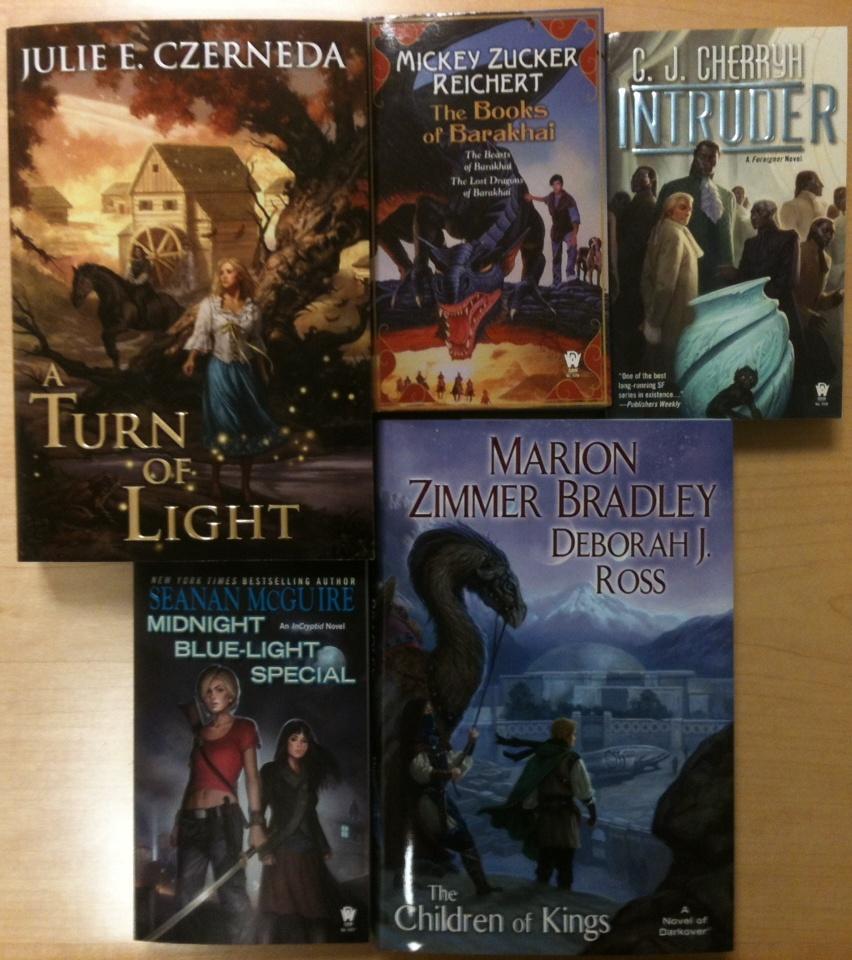This month, the Great Fantasy Traveling Round Table looks at "The Hero and the Quest." There are some thoughtful posts from host Warren Rochelle, Chris Howard, Carole McDonnnell, and Sylvia Kelso. Here' what occurred to me:
Once upon a time, a hero represented a very particular
character, an archetype if you will. He was invariably male, either a youth or
in the prime of life, neither a child nor infirm with age; he was physically
powerful and if not morally irreproachable, clearly a “good guy.” It was fine
for him to have a flaw or two, so long as it did not interfere with his ability
to accomplish great deeds and conquer mighty foes. Occasionally, the flaw would
prove his downfall, as in the case of Achilles. The tradition that stretches
from Odysseus, Beowulf, and Gilgamesh continued through King Arthur and his
knights, to Tarzan, the superheroes of comic books, Doc Savage, and James Bond.
True, there were occasional female-heroes in this mold, but mostly they
imitated the men, only with brass bikinis, improbably high heels, and better
fashion sense. What made them heroic, men and women alike, were physical
prowess, lofty ideals, and larger-than-life goals. In other words, they were
Worthy of The Noble Quest.
The Quest was always something beyond the reach of the
ordinary person. No average plowman or shop-keeper could aspire to find the
Grail or slay the dragon. The Quest usually involved what Joseph Campbell
called “the hero’s journey,” meaning that the central character must leave
behind the familiar, venture into unknown terrain fraught with danger, and then
return home. Sometimes he is changed by his experience, sometimes he merely
puts himself back on the shelf until the next plea for help.
The function of this kind of Hero is not only as a Campbellian
agent – that is, to guide the reader through a transformative journey – but as
an instrument of Order and of The Triumph of Good. (Notice how the topic
lends itself to unnecessary capitalization?) The world has veered toward Chaos,
if not actually toppled headlong into the abyss, and the task of the Hero is to
set things right. (I suspect that one modern incarnation of the classical Hero
is the detective, who restores right social order by solving puzzles that lead
to the apprehension of wrong-doers.) One of the implications here is that only
those of noble birth, etc., and who are favored by the gods have the capacity
to do great deeds. Aforementioned nobles undoubtedly relished stories that demonstrated
them how superior they were and didn’t mind the peasantry being reminded of it.
This propagated a hierarchical power structure in the same way as did the
notion of the divine right of kings. It reinforced the notion that those with
political power were inherently better (stronger, luckier, sexier, purer of
thought, beloved by the gods) than those who had none.




